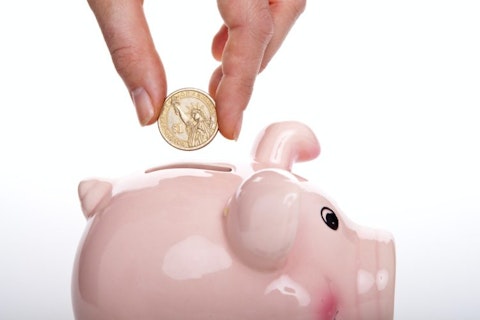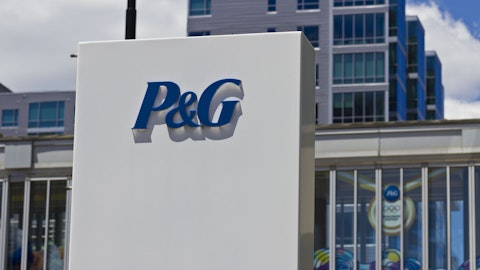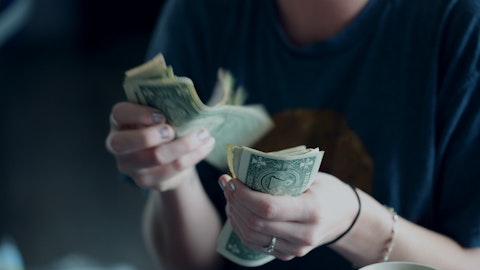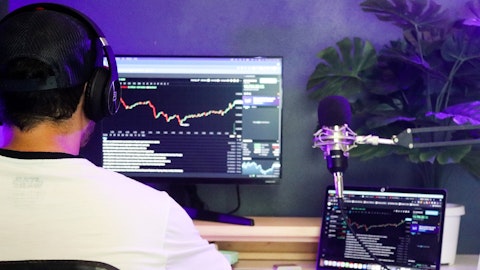In this piece, we will take a look at the 15 best interest yielding checking accounts in the US. For more checking accounts, head on over to 5 Best Interest Yielding Checking Accounts in the US.
When it comes to opening a bank account, there are a variety of options that are available to the consumer. Broadly speaking, these can be divided into four categories. These are checking accounts, savings accounts, money market accounts, and deposit certificate accounts. Any other account that your bank is marketing is simply a variant of these, with the bank’s brand name simply a simple method to highlight the account’s salient features.
However, each account serves a different purpose. Savings accounts offer their depositors a fixed rate of interest on their funds, with the option to easily withdraw them anytime. However, these accounts typically do not come with a debit card and also have a limit to the number of withdrawals in a month. If you want to earn interest on your savings and have a debit card, then most money market accounts offer this facility but come with the caveat of having a minimum balance requirement. Deposit certificate accounts are the most illiquid ones on our list, as they lock your funds for a specific time period and you cannot withdraw them without incurring a fee. Finally, checking accounts, also called current accounts, are the most simple kinds of accounts and are designed for everyday spending.
Believe it or not, bank accounts are one of the hottest topics in the U.S. finance industry these days. They had fallen out of favor with consumers for years after the Federal Reserve’s historically low interest rates meant that keeping money in a savings account would offer no real benefit. However, shocked by the persistent inflation in the U.S. economy, the central bank embarked on a crusade last year and jacked up interest rates by a massive 4.25% in just twelve months. This, of course, showered money into savings accounts as the rates offered to consumers drastically went up. For instance, right now, savings accounts offered by Bask Bank and CIT Bank offer annual percentage yields (APYs) of 4.45% and 4.40%, respectively – significantly higher than the rate at which even the Fed would have lent to the banks a little more than a year back. Keep in mind that there might be other institutions, such as Landmark Credit Union which offers a 7.5% APY, but unfortunately, this rate is only for the first $500 in deposit with the remainder earning the typical 0.11% APY of a checking account.
The Fed’s aggressive interest rate hikes have also made the American public uneasy about their bank balances. These fears grew after one of America’s largest banks, SVB Financial Group (NASDAQ:SIVB) collapsed after depositors rapidly withdrew their funds from the bank. The resulting long lines outside the bank’s branches created a general sense of panic as people worried whether their deposits were safe as well. This also led consumers to flood to larger banks such as JPMorgan Chase & Co. (NYSE:JPM), Citigroup Inc. (NYSE:C), and Bank of America Corporation (NYSE:BAC) particularly when their account balances exceeded $250,000 – the amount typically guaranteed by the Federal Deposit Insurance Corporation (FDIC). A Citigroup executive quoted by Financial Times described the situation as “[t]he banks picked up steam last week and continued on Monday, the people said. “The calls have been coming in today like airplanes stacked on a snowy day at O’Hare airport,” while a Wells Fargo analyst threw shade at JPMorgan – the biggest private bank in the world – by simply stating “Goliath is winning.“
These turbulent times in the U.S. banking sector have also made the government’s job quite difficult, with Treasury Secretary Jennet Yellen having had to change her statements within days. Ms. Yellen, who initially shied away from guaranteeing bank deposits in excess of the FDIC $250,000 limit, first hinted that government supports similar to that offered to SVB might also be offered to smaller banks, but only a day later also implied that larger banks that qualify might also benefit from government’s help. Her comments are in sharp contrast to the view espoused by the Republican Party, which is typically against any perceived or actual largesse from the government.
Finally, as to how the banking sector is performing, whether customers are spending more money, if their cash buffers built during the pandemic are still present, and has the Fed’s rate hike caused more deposits to flow into banks, JPMorgan’s chief financial officer Mr. Jeremy Barnum outlined during a recent analyst call that:
Starting with a quick update on the health of U.S. consumers and small businesses based on our data. They are generally on solid footing, although sentiment for both reflects recessionary concerns not yet fully reflected in our data. Combined debit and credit spend is up 9% year-on-year. Both discretionary and non-discretionary spend are up year-on-year, the strongest growth in discretionary being travel. Retail spend is up 4% on the back of a particularly strong fourth quarter last year. E-commerce spend was up 7%, while in-person spend was roughly flat. Cash buffers for both consumers and small businesses continue to slowly normalize, with lower income segments and smaller businesses normalizing faster.
Consumer cash buffers for the lower income segments are expected to be back to pre-pandemic levels by the third quarter of this year. Now moving to financial results. This quarter, CCB reported net income of $4.5 billion on revenue of $15.8 billion, which was up 29% year-on-year. You will notice in our presentation that we renamed Consumer & Business Banking to Banking & Wealth Management. Starting there, revenue was up 56% year-on-year, driven by higher NII on higher rates. Deposits were down 3% quarter-on-quarter as spend remains strong and the rate cycle plays out, with outflows being partially offset by new relationships. Client investment assets were down 10% year-on-year, driven by market performance, partially offset by net inflows where we are seeing good momentum, including from our deposit customers.
With these details in mind, let’s take a look at some high yield checking accounts in the U.S.

damir-spanic-vwaTtIhCjVg-unsplash
Our Methodology
To compile our list, we gathered all the checking accounts offered by different banks in the U.S. and then found out their annual percentage yield (APY). In banking, the APY also includes the effect of compounded interest on your bank balance. The top U.S. checking accounts with high APY are listed below.
15 Best Interest Yielding Checking Accounts in the U.S.
15. CIT Bank
Latest APY: 0.1%
CIT Bank’s checking account reimburses up to $30 a month for withdrawals made from outside ATMs. However, it does have a $100 minimum account opening balance and a tiered interest rate payment structure with the minimum rate being 0.10% and the highest 0.25% for deposits above $25,000.
14. Alliant Credit Union High-Rate Checking
Latest APY: 0.25%
Alliant Credit Union High-Rate Checking offers free overdraft protection when linked with an Alliant Savings Account and does not have a minimum balance requirement. Its 0.25% interest rate is contingent on at least one deposit being made each month.
13. Quontic High Interest Checking
Latest APY: 1.10%
Quontic High Interest Checking offers a high 1.10% interest rate if at least 10 transactions greater than $10 are made per month through a debit card. For others, the rate is the standard 0.10%. However, it does not accept cash deposits.
12. SoFi Checking and Savings
Latest APY: 1.20%
SoFi Checking and Savings does not have an opening balance requirement and offers a 1.20% rate on all deposits. It also offers cash bonuses as part of a special scheme.
11. Industrial Bank Kasasa
Latest APY: 1.47%
Industrial Bank’s Kasasa checking account offers a 1.47% APR for balances below $15,000. It requires a $100 deposit to open and reimburses some ATM fees.
10. NBKC Bank Everything Account
Latest APY: 1.50%
NBKC Bank Everything Account is one of the top checking accounts when it comes to the interest rate offered. It does not have monthly fees or overdraft fees. Additionally, it has a mere $7 domestic overdraft fee, but a high international wire transfer fee of $45. This fee is not limited to only inbound transfers, as it is also applicable to money coming inside the account. ATM fee reimbursements can go up to $12.
9. Connexus Credit Union Xtraordinary Checking
Latest APY: 1.75%
Connexus Credit Union Xtraordinary Checking is the high end checking account offering from the Connexus Credit Union. It offers a high 1.75% interest rate for balances above $25,000 and a 0.25% interest for balance below it. The credit union also has a high 2.00% interest rate for Teen accounts for users that are aged between 10 and 17 years and for balances up to $1,000. The interest earned is paid out as a dividend, and the account offers $25 in reimbursements for ATM charges as well which are contingent on debit card transactions.
8. Heritage Bank eCentive Account
Latest APY: 2.02%
Heritage Bank eCentive Account has one of the strongest interest rate yields on a checking account, and particularly those with low balances. For balances that are below $100,000, the account has an interest rate of 2.02%. The bank also has no minimum account balance requirements. However, the 2.02% rate has some requirements, such as a minimum of $500 in monthly debit card transactions, or direct deposits in the account combined with receiving monthly eStatements.
7. Lake Michigan Credit Union
Latest APY: 3.00%
The Lake Michigan Credit Union’s checking account has a 3% APR for balances up to $15,000. It requires one monthly deposit, e-statement subscription, and online banking log ins to meet the APR requirements.
6. Axos Bank Rewards Checking
Latest APY: 3.30%
Axos Bank Rewards Checking offers a high interest rate of 3.30% for balances that are below $50,000. This is contingent on several factors, including direct deposits that are greater than $1,500, ten debit card transactions each month with a minimum transaction value of $3, an average daily balance that is higher than $2,500, and a payment to an Axos consumer loan. Naturally, the 3.30% rate is contingent on all these factors, and the final payment will be based on the criteria that the account has met during the month.
Click to continue reading and see 5 Best Interest Yielding Checking Accounts in the U.S.
Suggested Articles:
- 11 Best Waste Management Stocks to Buy Now
- Top 10 Growth Stocks in Biotech
- 8 Best Insider Trading Websites in 2023
Disclosure: None. 15 Best Interest Yielding Checking Accounts in the U.S. is originally published on Insider Monkey.





